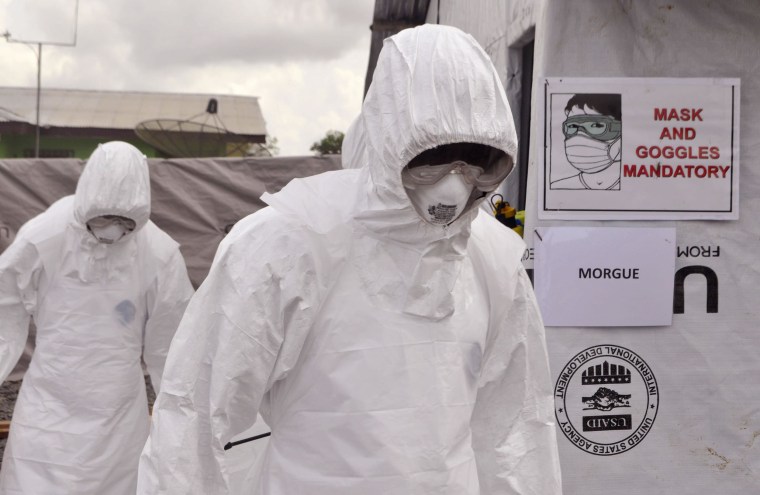LONDON — Men who recover from Ebola should abstain from sex for three months to minimize the risk of passing the virus on in their semen, the World Health Organization (WHO) said on Friday.
Ebola, a disease that has infected and killing thousands in a vast epidemic in West Africa, normally spreads via bodily fluids such as blood, saliva and feces. Although sexual transmission of Ebola virus disease has never been documented, the virus has been detected in the survivors' semen.
"Men who have recovered from Ebola virus disease should be aware that seminal fluid may be infectious for as long as three months after onset of symptoms," the WHO said in a statement. "Because of the potential to transmit the virus sexually during this time, they should maintain good personal hygiene after masturbation, and either abstain from sex (including oral sex) for three months after onset of symptoms, or use condoms if abstinence is not possible."
Almost 16,000 people are known to have been infected with Ebola in the current outbreak and 5,689 of them have died. The virus causes hemorrhagic fever, and there is as yet no cure or vaccine.
Almost all the cases and all but 15 deaths have been in Guinea, Sierra Leone and Liberia - the three hardest-hit countries, which reported 600 new cases in the past week, the WHO said in its latest update.
IN-DEPTH
- Drug-Resistant Malaria Is 'Disaster in the Making,' Expert Warns
- First Human Ebola Vaccine Trial Shows It Seems to Work
